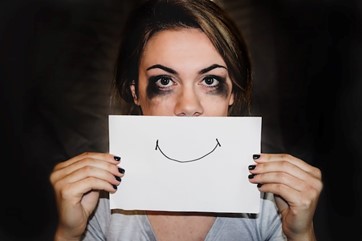
In its original inception, the Mental Health Parity and Addiction Equity Act was intended to ensure that insurance companies cover addiction disorders and mental healthcare with an equal amount of coverage as physical disorders. Despite its status as a codified legal requirement, many insurance companies and doctors have been found to skirt around the law’s provisions.
In some cases, this has led to patients with mental health disorders being denied coverage outright, while in other cases they have been required to pay higher out-of-pocket costs. Understandably, patients feel that their needs are not being met and that they are being intentionally left out of the medical institution. To understand the issues, Eva Carlston Academy examines the MHPAEA and discusses its shortcomings.
The Original Motivation Behind the Mental Health Parity and Addiction Equity Act
The MPHAEA was passed in 2008 with the intention of ensuring that insurance companies would cover psychological and addiction disorders with the same level of coverage as physical disorders. The law states that insurance companies may not set different limits on mental health benefits than they do for physical health benefits.
This was in response to the long-standing issue of insurers discriminating against psychological and addiction disorders. Mental healthcare has historically been treated as less legitimate than physical healthcare, and as a result, insurers have managed to get away with providing less mental health coverage. MHPAEA, therefore, intended to level the playing field and ensure that psychological and addiction disorders were given the same level of care.
The Shortcomings of the MHPAEA
Despite its good intentions, the MHPAEA has fallen short in its implementation. Insurance companies successfully circumvented the law by outright denying payments or otherwise working with out-of-network service providers to disenfranchise customers with psychological and addiction issues. The result of these practices is that patients with mental health disorders are being denied the coverage they need and are being left to fend for themselves.
The MHPAEA has also been found to be lacking in its enforcement mechanisms. The law gives the Department of Labor the authority to enforce the law, but the department has been slow to act. As a result, patients have been left without any recourse when they are denied coverage.

The Future of the Act
At the beginning of 2022, the United States Departments of Health and Human Services, Labor, and the U.S. Treasury released a joint report discussing the failures of the MHPAEA. In it, the Departments highlighted the lengths to which insurers went to deny customers fair coverage. However, it does go on to outline recent efforts to improve the enforceability of the act.
Under the Consolidated Appropriations Act of 2021, the Departments will now have greater power to go after and fine insurance companies who violate the law. It remains unseen how well these new powers will affect the problem but there is hope on the horizon.
The Bottom Line
Although the MPHAEA was intended to improve access to mental health and addiction services, insurers have been able to work around the law, leaving thousands of Americans without fair healthcare. The United States government is now aware of the problem and is working to better enforce its provisions but, for now, it remains unclear whether anything will change.



